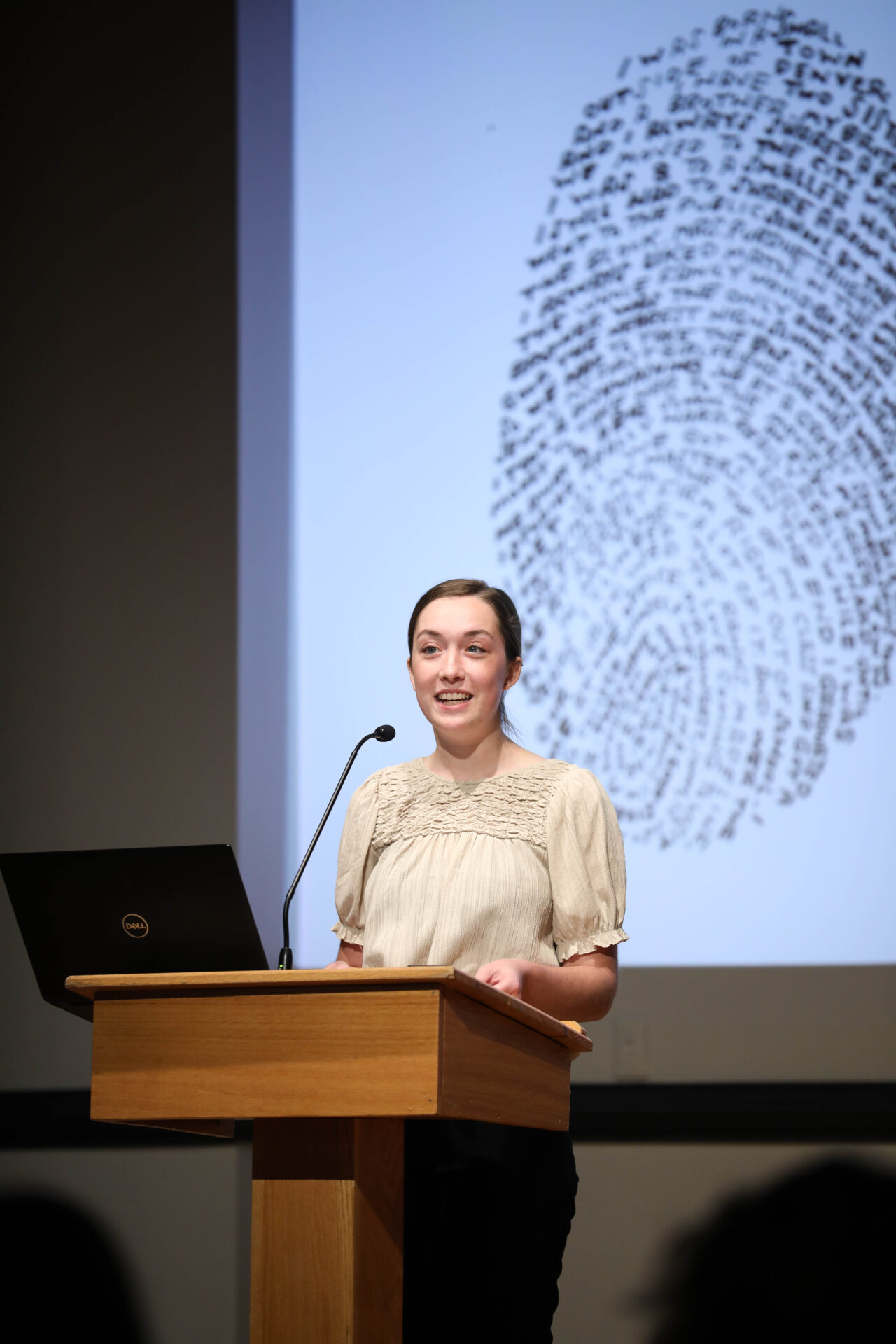 Honors Program Hosts Third Interdisciplinary Seminar
Honors Program Hosts Third Interdisciplinary Seminar
March 2, 2023
How are we “known” by our words? Is there any replacement for parental involvement in education? How can geriatric care best respond to dementia and cognitive decline? These were some of the questions considered during the third Florida College Honors Program interdisciplinary seminar of the semester.
The Honors Program provides opportunities for high-achieving students to grow in their education through academic experiences like interdisciplinary seminars. Through extensive research and writing, students from different academic departments expand their knowledge by applying their coursework beyond the classroom to explore and present related topics. Three of our honors students presented at the third interdisciplinary seminar of the semester, representing the communication, education, and English departments.
Some have commented that “no one remains anonymous very long when writing.” It seems apparent that we are what we write, and Claire Arden—one of our seniors majoring in communication—examined the matter of applied linguistics. The main components are psycholinguistics, examining word choice in terms of our cognitive abilities and capacity to learn, and forensic linguistics, seeking to decode language and determine the likely writer of a text.
Whether learning language, mathematics, science, history—or any other academic discipline—it has long been assumed that parental involvement is fundamental to student success. School teachers have observed that parents who attend “meet the teacher” on visitation evenings at the beginning of the school year typically have children who will likely be among the better students. The associated question often regards the level of involvement by parents; the “Tiger Mom” reality might drive a student to a higher level or discourage a child. Ultimately, a parent must understand their child to know what is best. Chloe Sneed, a senior majoring in elementary education, guided listeners through this topic.
For many, the wearing down of cognitive abilities is part of the transformations of age. Yet, geriatric care spans those who retain sharp awareness and those who experience what is broadly termed “dementia.” Jessie Trimble, a junior majoring in English with an emphasis in biology, presented on this matter. In some ways, it is clear that the “linguistic fingerprints” we possess may change over time as our mental acuity changes. It also may be that involvement of others in our lives on both a personal and societal level causes differentiations in the regression of cognitive function over time.
The Honors Program will continue to further the education of our students by offering additional opportunities and pursuing new ones. For more information about the Honors Program at Florida College, click here.
